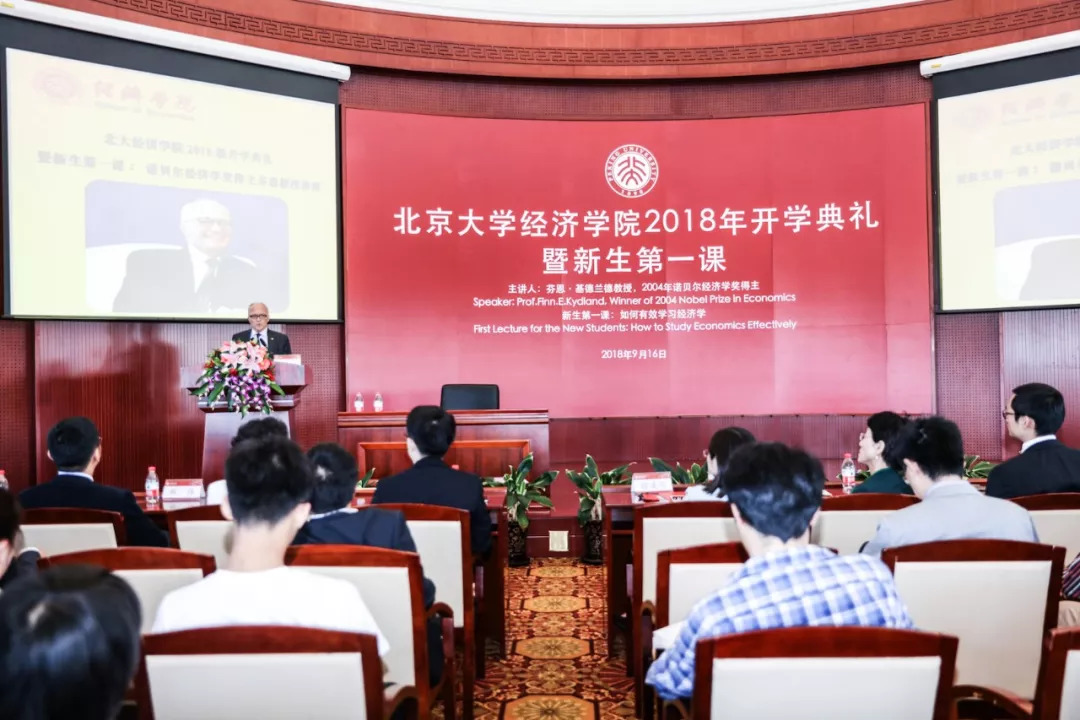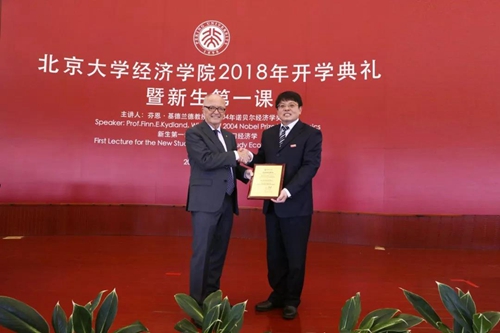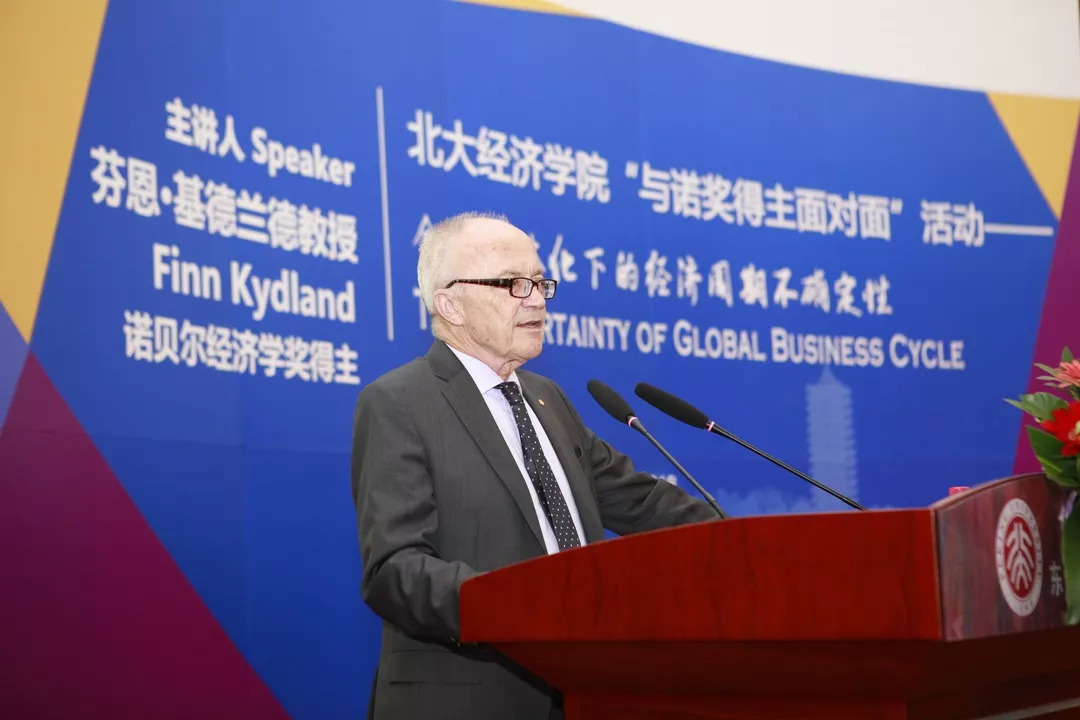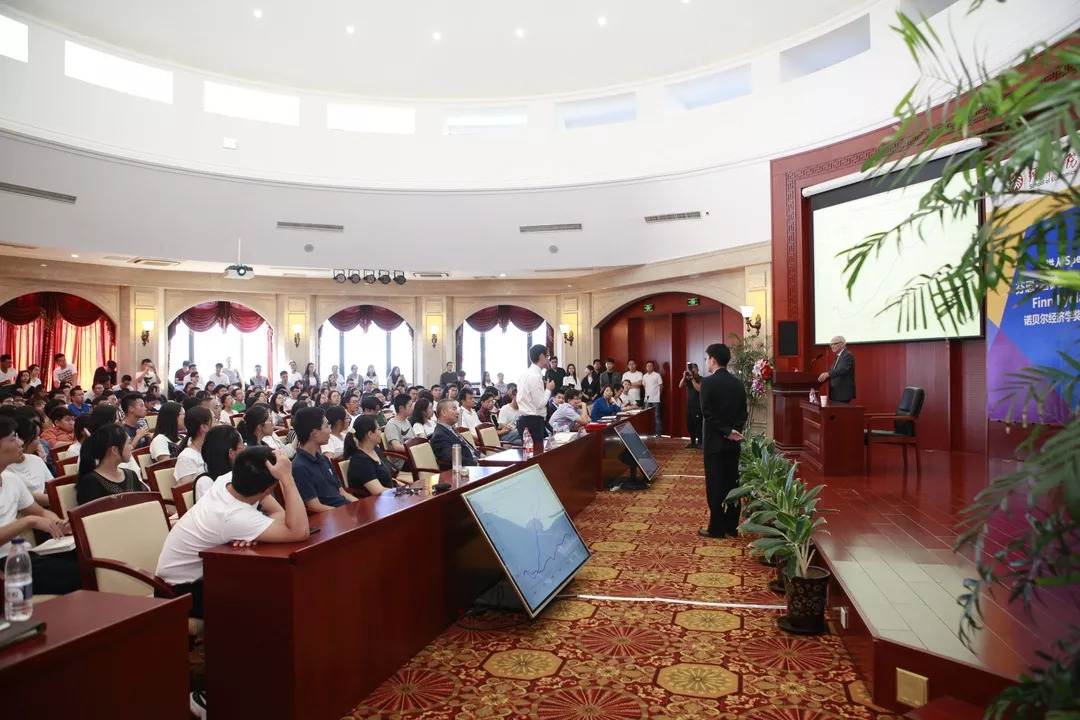 >Home>
SEPKU News
>Home>
SEPKU News
On 16th September, Professor Finn E. Kydland, awardee of the Nobel Prize in Economics in 2004, Henley Professor of Economics at the University of California, Santa Barbara, delivered a lecture entitled “First Lecture for the New Students: How to study Economics Effectively” and an academic seminar entitled “The Uncertainty of Global Business Cycle” at School of Economics Peking University.

The First Lecture for the New Students
In the keynote speech, Professor Kydland illustrated the importance of university studies with the economic concept “human capital”. He compared the process of learning to the accumulation of human capital and pointed out it would be a life-long benefit for students. Then he encouraged students to participate in academic conference actively and cultivate research interests autonomously by sharing his own learning experience. Professor Kydland also gave three pieces of advice to the freshmen: first, math always matters, for it lays the foundation of any future edifice; second, participate in research projects to both discover meaningful economic topics and cultivate an economic way of viewing the real world; third, learn some programming as useful tools for more complexed economic problems.
After the speech, Professor Dong Zhiyong, Dean of School of Economics, presented Professor Kydland with a certificate

Prof. Dong Zhiyong presenting Prof. Finn E. Kydland with the certificate

The Academic Seminar “The Uncertainty of Global Business Cycle”
In the academic seminar, Professor Kydland introduced the growth of per capita GDP in China, America, Japan and Mexico from 1950 to 2010. Afterwards, he analyzed the reasons for the differences in economic development between countries by introducing the growth function in macro-economics. He argued that time discontinuity and uncertainty of economic policies, especially fiscal and monetary policies, served as the primary factor resulting in differences in the long-term economic growth of various countries. Time discontinuity referred to the fact that the government announced its next-step policies consistent with its current policies, whereas in the future, it actually deviated from the policies made at that time. Thus, the government might just focus on the short-term benefits when formulating policies, which undermined the trust of private enterprises in the government and their investment, and eventually influenced the stability of long term economic growth.
Professor Kydland then took Ireland as an example and discussed the influence of inconsistent fiscal policies on the economic development of Ireland. Ireland had plenty of high-skilled talents but lacked factories and equipment before 1990, therefore, the Irish government decided to attract investment for building factories in the country by reducing taxes. Within just ten years, Ireland became one of the countries with the highest average income in Western Europe from a rather lower level. The improvement in total factor productivity (TFP) and labor productivity also symbolized the rapid economic development of Ireland.

During the Seminar
Subsequently, Professor Kydland introduced the concept of business cycle and its impact on economic growth by taking America as an example. Since the Second World War, although American economy fluctuated from time to time, it had maintained a steady growth and its annual growth rate of per capita GDP had been roughly in line with its long-term growth rate. However, the recovery of American economy remained a hard task after the economic crisis in 2008, which, as Kydland suggested, was influenced by its macro-economic policies.
Finally, Professor Kydland discussed with teachers and students on the development of Chinese economy and the policy, the application of traditional theoretical model on current research and other related questions.

The Discussion after the Seminar
Biography of Prof. Finn Erling Kydland
Finn Erling Kydland (born 1 December 1943) is a Norwegian economist known for his contributions to business cycle theory. He is the Henley Professor of Economics at the University of California, Santa Barbara. He also holds the Richard P. Simmons Distinguished Professorship at the Tepper School of Business of Carnegie Mellon University, where he earned his Ph.D., and a part-time position at the Norwegian School of Economics (NHH). Kydland was a co-recipient of the 2004 Nobel Memorial Prize in Economics, with Edward C. Prescott, "for their contributions to dynamic macroeconomics: the time consistency of economic policy and the driving forces behind business cycles.”